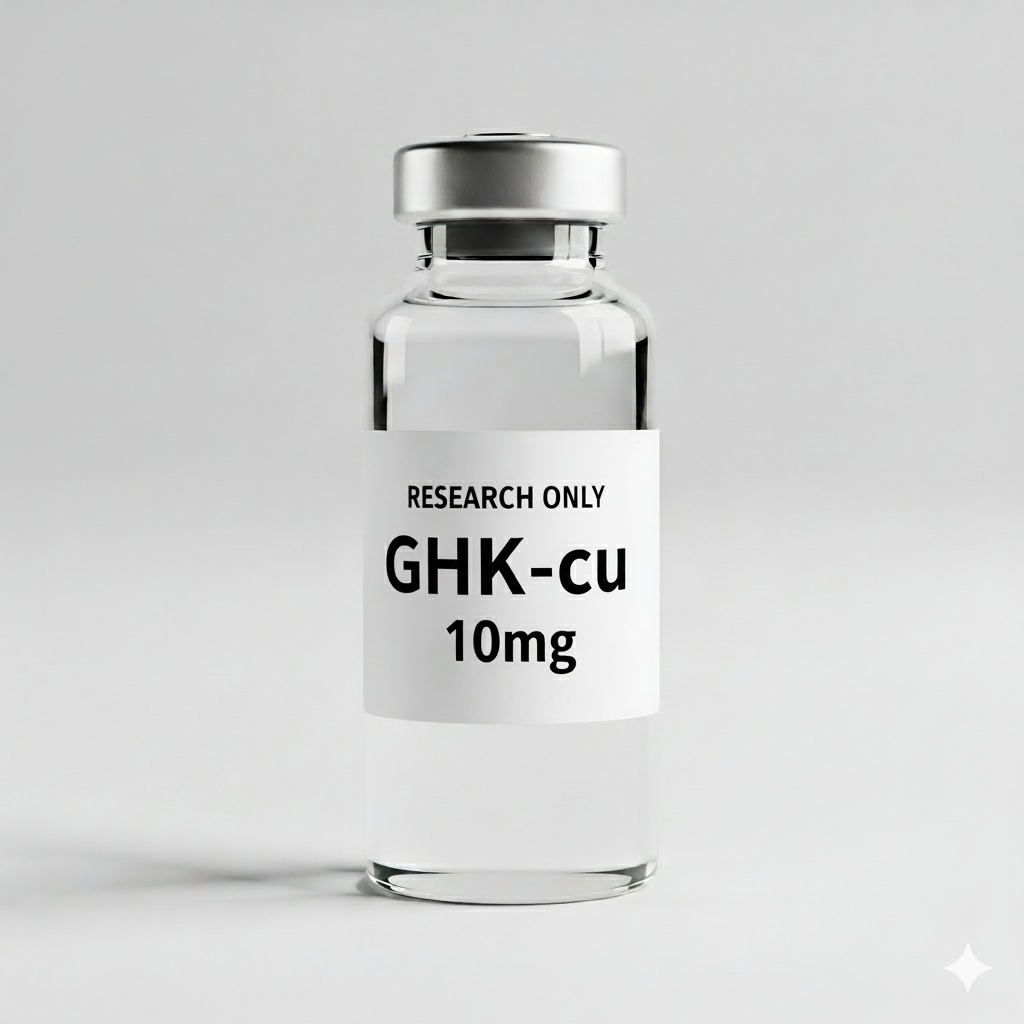
GHK-cu 100mg
This GHK-cu 100mg is for research purposes only. This product is not approved by the FDA for use.
As researchers, it is imperative that you do your due diligence and fully research prior to making a purchase. Though this product is not intended to be used for human consumption, a basic AI search of human use risks are:
GHK-Cu (Glycyl-L-histidyl-L-lysine–Copper) is not an FDA-approved drug for treating or curing any medical condition.
The U.S. Food and Drug Administration (FDA) has not given GHK-Cu a New Drug Application (NDA) approval, which is the process required to market a drug for specific medical uses like treating a disease.
However, its regulatory status depends heavily on how it is used and administered:
Injectable Formulations (Highly Restricted):
-
The FDA has added GHK-Cu for injectable routes of administration to its Category 2 - Bulk Drug Substances that Raise Significant Safety Concerns list.
-
This action restricts compounding pharmacies from preparing and selling injectable GHK-Cu, citing a lack of human safety data and potential risks like immunogenicity (immune reactions) and product impurities.
1. Risk of Immunogenicity (Immune Reactions)
-
The Main Concern: The FDA specifically warns that compounded injectable GHK-Cu may pose a risk for immunogenicity. This means the body's immune system could potentially see the peptide as a foreign invader and trigger an unwanted or harmful immune response.
-
Cause: This risk is often associated with the potential for the peptide to aggregate (clump together) or have impurities that develop during the compounding process.
2. Contamination and Impurities
-
Compounding Variability: Unlike mass-produced FDA-approved drugs, compounded peptides are custom-made, which can lead to variability in purity and potency.
-
Safety Risk: The FDA points to the complexity regarding peptide-related impurities and active pharmaceutical ingredient (API) characterization as a significant safety concern for injectable forms. Impurities can lead to unpredictable or adverse reactions in the body.
3. Lack of Human Safety Data
-
Limited Data: There are very limited data in humans to inform safety-related considerations for injectable GHK-Cu. While the peptide has been extensively studied for its topical benefits, its long-term systemic effects when injected are not well-established.
4. Common Injection-Related Side Effects
As with any subcutaneous injection, common side effects are possible at the injection site:
-
Localized Pain or Discomfort: Stinging, burning, or tenderness at the injection site.
-
Bruising and Swelling: Temporary discoloration or localized inflammation.
5. Other Theoretical Risks
-
Copper Toxicity (Rare): Since GHK-Cu contains copper, there is a theoretical, though unlikely, risk of copper toxicity if used excessively or if a person has a pre-existing condition affecting metal metabolism (like Wilson's disease).
-
Interference with Healing: While GHK-Cu is known for healing properties, some studies caution that its actions on stimulating cell growth (angiogenesis) must be carefully considered, especially in individuals with active or suspected cancer.
In summary, the most serious concerns for injecting GHK-Cu are the potential for unpredictable immune reactions and the risk of impurities in non-FDA-approved, compounded injectable products.




